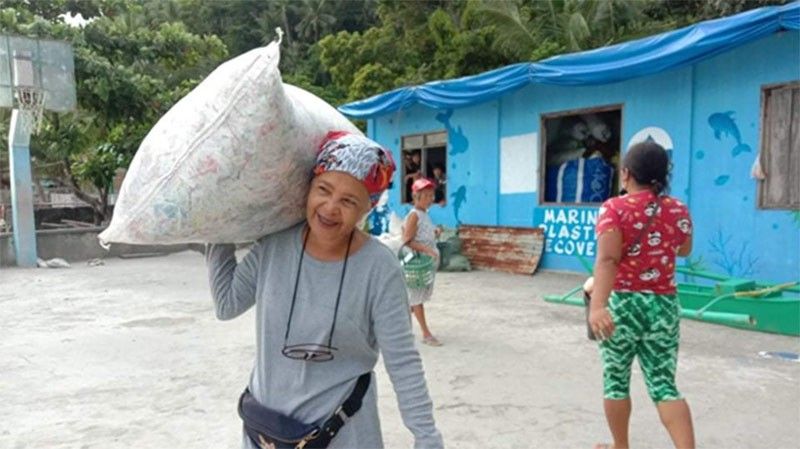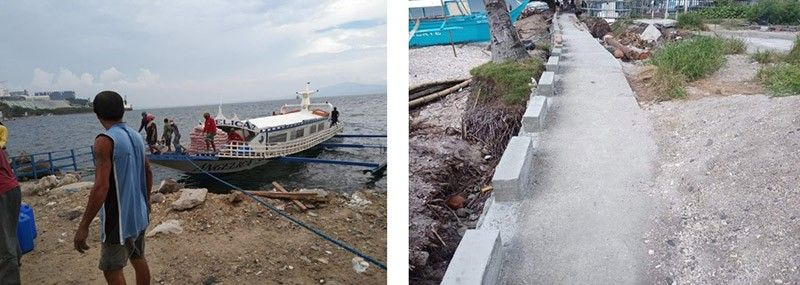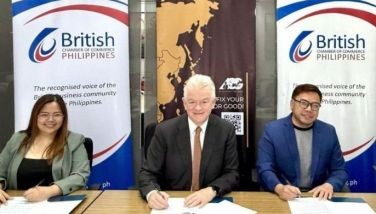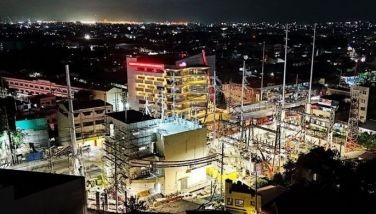Republic Cement, Pure Oceans team up to divert marine plastic waste

MANILA, Philippines — Globally, around 4.8 to 12.7 million tons of plastic wastes enter the oceans every year according to an article published by the World Bank 2021. The same article revealed that 40-50% of these marine plastic wastes are single-use consumer packaging and 80% of the global plastic wastes leaking into the ocean comes from Asia.
In fact, the Philippines is the third largest contributor of marine plastic waste with over 750,000 tons of plastics entering the ocean annually.
To combat marine plastic pollution, a social innovation enterprise is working tirelessly in coastal areas in Batangas and Davao to promote and implement sustainable solutions that reduce marine plastic litter and transform residents into active agents of marine conservation.
Led by Founder and CEO Pia Roxas Ocampo, Pure Oceans is making a significant impact in the coastal municipalities of Mabini and Tingloy, Batangas and Samal Island, Davao by working closely with the locals and fisherfolk to take out plastic wastes from coastal waters and beaches.
“Pure Oceans works with coastal communities that must live amid tons of plastic waste brought from wealthier cities or municipalities by the currents, waves and wind. We help the communities develop, prototype, test and sustain plastic waste solutions that allow them to live healthier and more dignified lives despite this plastic crisis that impacts them directly,” she shared.
Republic Cement, through ecoloop, its official resource recovery group, partnered with Pure Oceans in diverting non-recyclable and single-use plastic wastes collected from coastal waters and shores to a more viable disposal method called cement kiln co-processing.
Co-processing involves the reuse or recovery of thermal and mineral properties of qualified waste materials, such as residual plastic or rice husk, as alternative fuels for cement manufacturing.

“Co-processing is preferred over other unsustainable disposal methods such as incineration and physical/chemical treatment,” Atty. Angela Edralin-Valencia, ecoloop director, shared.
“The by-products of these two disposal methods, i.e. ashes and treated wastes, would eventually end up in landfills. In contrast, co-processing, which optimally operates at 1,450 degrees Celsius, destroys residual waste completely. Hence, no residual by-products such as ash is produced. Noxious gas emissions are controlled within the combustion chamber through gas and material counter flow,” she added.
Republic Cement is the pioneer of using alternative fuels in the cement manufacturing process in the country, having over 20 years of co-processing experience. By using alternative fuels in the manufacture of cement, the company is able to reduce dependence on fossil fuels, such as coal.
Its plants are equipped with baghouse filters and electrostatic precipitators as well as state-of-the-art Continuous Emission Monitoring Systems (CEMS) to ensure strict compliance with emissions and environmental standards.
Since 2020, Pure Oceans has diverted an equivalent of 1.93 million sachets of waste to co-processing. Republic Cement also further incentivized Pure Oceans and the local government of Tingloy to collect and segregate trash by offering cement in exchange for qualified plastic wastes.
The exchanged residual plastic waste was used by Pure Oceans and Tingloy as supplementary for the reconstruction of the beachfront walkway in a small barangay damaged by Typhoon Quinta back in 2020.
Ocampo shares that the partnership with ecoloop continues to help their overall program. “Republic Cement's ecoloop, with its cement-exchange program, has helped our Tingloy communities rebuild from typhoons and construct the much-needed Material Recovery Facilities. But of course, the biggest help from ecoloop is their providing an alternative endpoint for traditionally unrecyclable plastics.”
“With the Philippines' lacking waste management system, our marine ecosystems are the default endpoint of plastic waste, dealing immediate damage and susceptibility to disease for our corals and fish. Plastic waste is already out there in nature—every piece of wrapper, broken toy or coffee cup lid—is an urgent, direct threat to our marine environment. I am personally glad that there is an option like ecoloop allowing us to divert these threats,” she added.
“Republic Cement is proud to partner with organizations such as Pure Oceans,” said Republic Cement CEO Roman Menz.
“Their deep commitment towards safeguarding the environment while making significant contributions to the Philippine Plastic Waste crisis is an inspiration for us to continue doing what we do in order to make a tangible impact on our communities, towards building a greener and Stronger Republic,” he concluded.
For more information on how your organization can partner with ecoloop or for support in complying with the EPR Law, contact [email protected].
- Latest


























